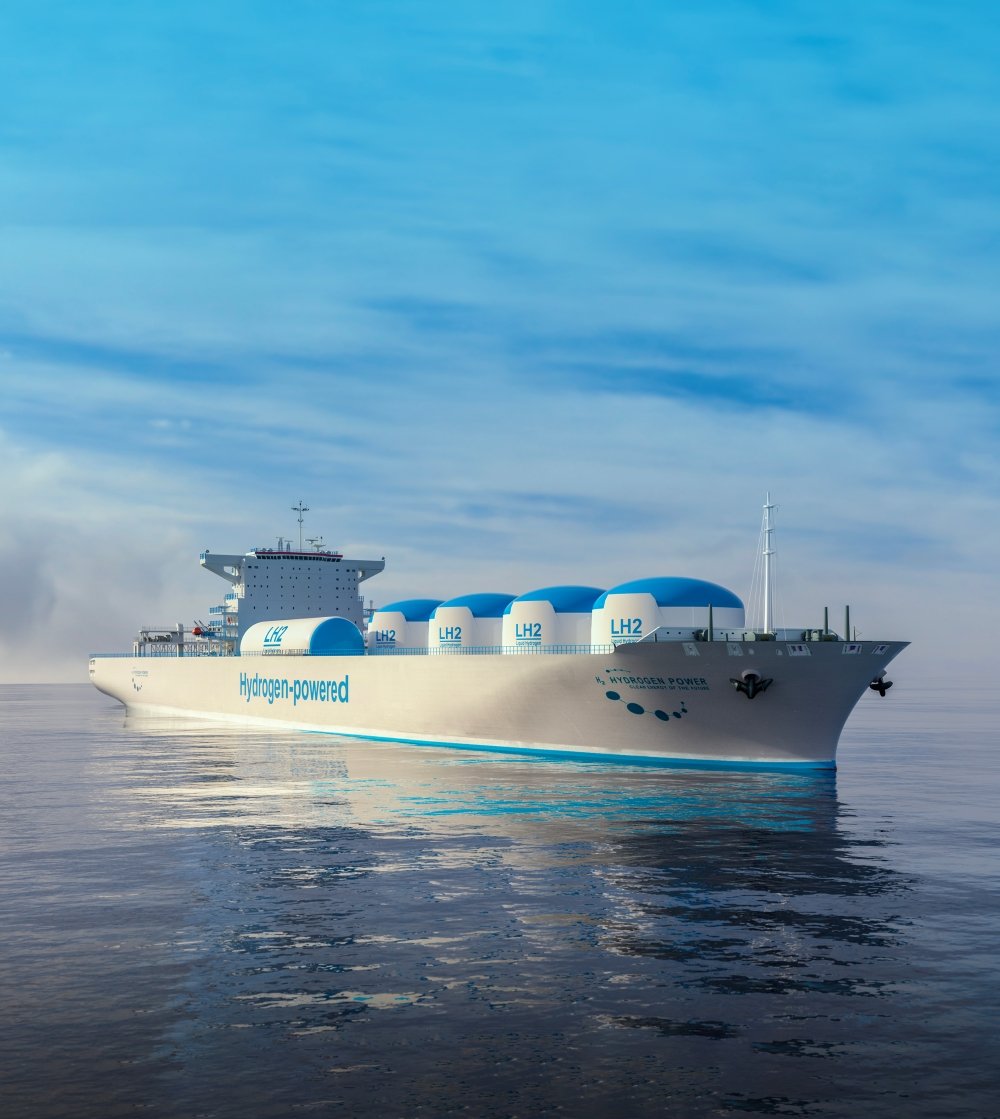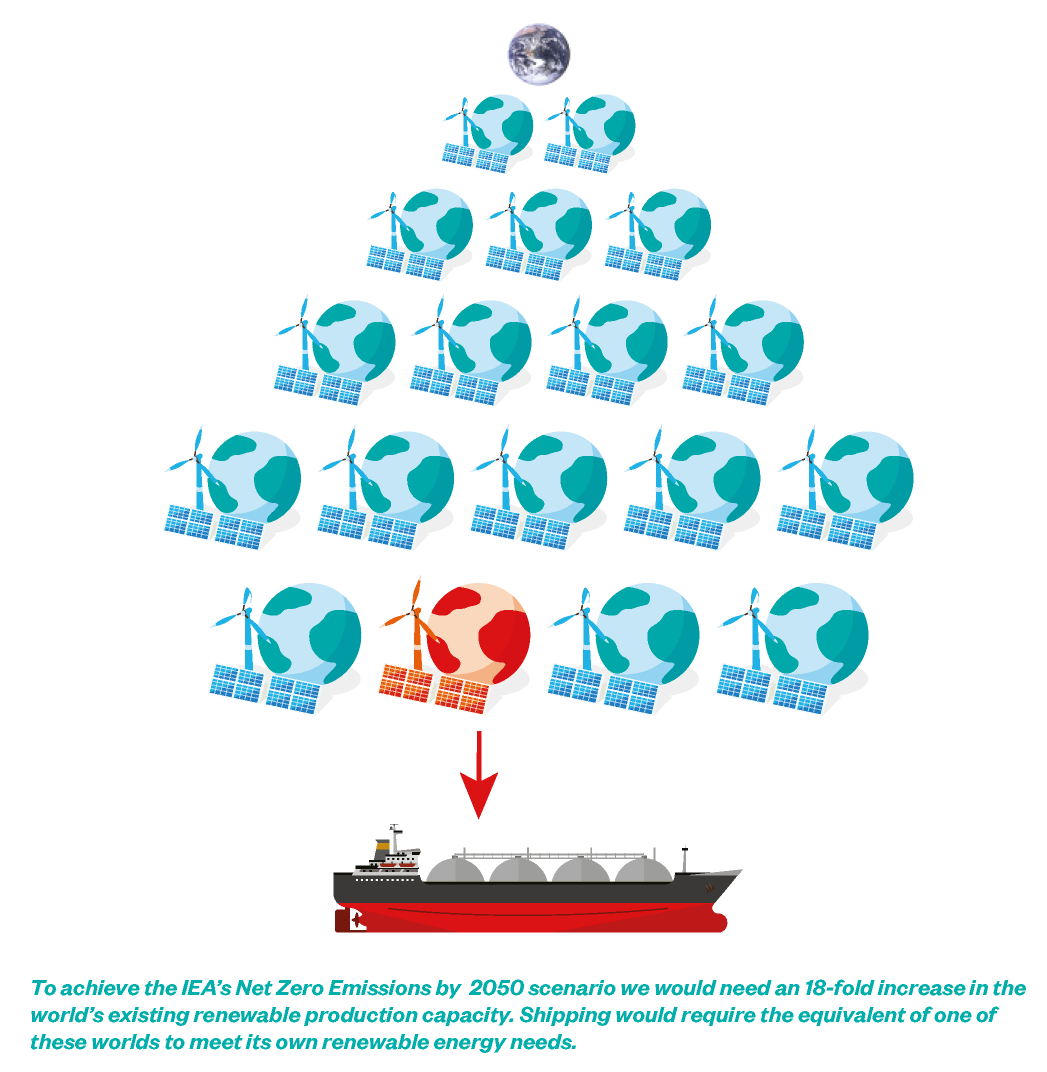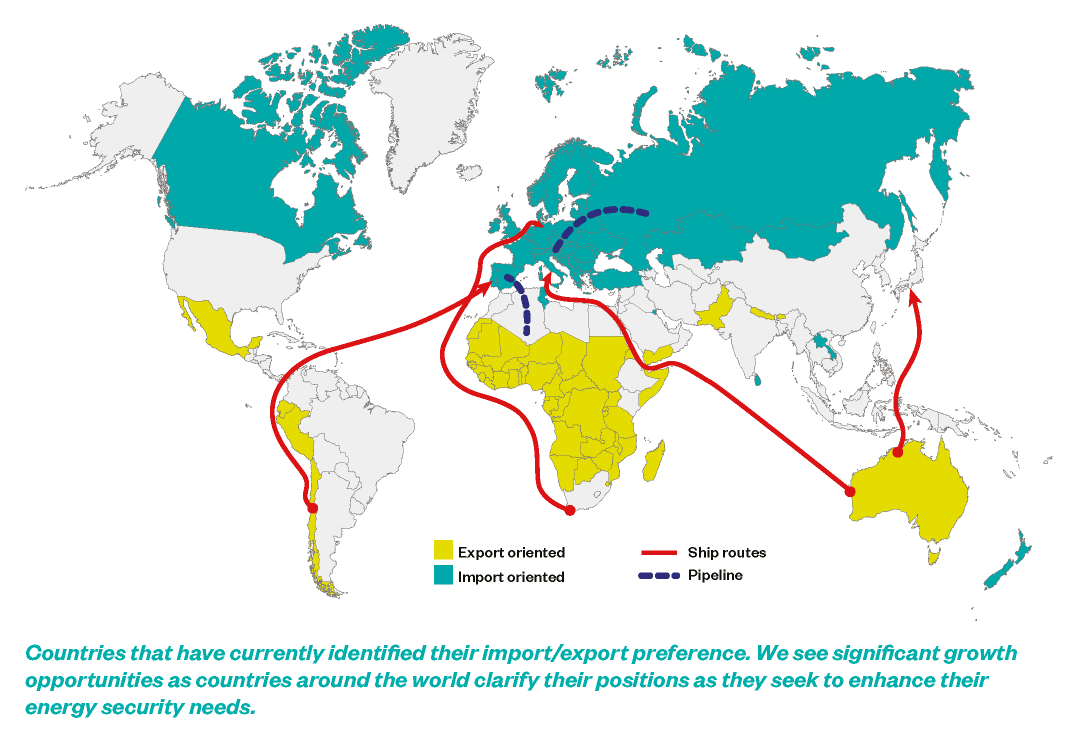Shipping’s essential role in the fourth propulsion transition
Governments and land-based industries must account for shipping in infrastructure and investment plans to support their own decarbonisation goals

As the world moves to a decarbonised future, governments and industries will all be vying for the same net zero carbon fuels. Shipping alone will require up to the equivalent of all the world’s current renewable energy production for its green fuel needs, according to International Chamber of Shipping’s (ICS) latest report. However, what Fuelling the Fourth Propulsion Revolution also reveals is that shipping will play an essential role in the global energy transition and underscores the pressing need for governments and industries to include shipping in their renewable energy policies, infrastructure and investment plans to ensure their future energy security.
“With this investment comes opportunity for a return as there will be a significant differential between supply and demand as the world transitions to these new fuel sources,” the report’s author, Prof. Dr. Stefan Ulreich of the University of Applied Sciences Biberach, Germany, explains.
Taking hydrogen fuels as an example, the report states that the expected production cost differentials across the world would be in the range of €72.60/MWh to €156.40/MWh in 2050, meaning that the trading of hydrogen “could create substantial benefits” for exporting and importing countries.

What is clear from the research, he continues, is that shipping will be a “key enabler” of the global energy transition. According to the International Renewable Energy Agency shipping is expected to transport at least half of the net zero fuels needed to decarbonise the world. This is largely down to the fact that many of these fuels will be exported from nations with an abundance of wind and solar capacity that exceeds domestic needs (largely in the global south) to those with less capacity to produce enough renewable fuels for their own needs (largely in the global north). Shipping becomes the most economical option when transporting green fuels over distances above 10,000km, the report notes.
Opportunities for all
While many discussions around decarbonisation can focus on the challenges and road blocks to achieving 2050 emissions goals, the ICS report also lays out the “massive economic opportunity” it poses for shipowners, countries and companies “as fuel producers, importers and exporters”.
“A great deal is talked about the global energy transition to zero emission fuels outside of shipping,” says Stuart Neil, Director of Strategy and Communications at the ICS says. “But what we have found in this report is that there is a tremendous opportunity for all.”
In particular, developing economies are in a strong position to gain economic benefits by becoming fuel supply producers and exporters of net zero carbon fuels to meet high demand from Europe, North America and Asia, the report explains. Shipping would be the go to, cost effective choice for transporting fuels from supply hubs in developing nations over long distances.
Latin America and Africa are identified in the ICS report as regions that could benefit from more than 20% lower costs of production and transport of fuels due to their high solar and wind capacity. Similarly, existing energy hubs in the Middle East and North Africa could see economic gains from switching existing energy hubs from fossil fuels to net zero carbon fuel supply hubs to take advantage of the abundance of sun and wind in those regions.

However, as Prof. Dr Ulreich stresses, there are many countries with excellent conditions to become an exporter of green fuels, but success is not guaranteed. “Some homework needs to be done upfront in order to become a reliable supplier of (net) zero carbon fuels” he explains, noting that the real benefits will be for those countries able to act fast on the opportunities they have.
In many cases, the international community will need to support developing economies, including investments to build the necessary infrastructure, to prevent them from missing out on early mover advantages.
“The required support depends crucially on the local situation: some need organisational support and capacity building in order to make it happen, others are experienced in global trade and are interested in a long-term commitment of importers in order to justify investments” says Prof Dr Ulreich.
This issue is being explored in work done by the Maritime Just Transition Task Force, launched by ICS, the International Transport Workers’ Federation and the United Nations Global Compact at COP26. However, ensuring an equitable green transition will require concerted action and commitments from governments around the world.
Shipping’s decarbonisation role
In a world that will depend on shipping to transport more than half of its net zero carbon emission fuels by 2050, the resounding message running through the Fuelling the Fourth Propulsion Revolution is clear: governments and industries must act now and write shipping into their decarbonisation plans to ensure their future energy security.
Yes, there are challenges ahead; to achieve the IEA’s Net Zero Emissions by 2050 scenario the world would need an 18-fold increase in existing renewable production capacity. However, for early movers that become net zero carbon emission fuel hubs, producers, importers and exporters the opportunities are enormous.
Prof Dr Ulreich concludes, “Shipping as an essential transporter of (net) zero carbon fuels and as a substantial consumer of these fuels will both be core drivers for the global promotion of new climate-friendly fuels and create massive economic activity for all.”
The full report can be found here.
Related content

‘Shipping Committed to Green Growth’ ICS to Tell UN Ocean Conference

ICS Leadership Insights Live: Next steps for shipping’s decarbonisation post-COP26 round-up

ICS Leadership Insights Live: The 4th Propulsion Revolution – Commitment and Challenge round-up

Strategic Thinking: Are Paris Agreement targets slipping from grasp?
